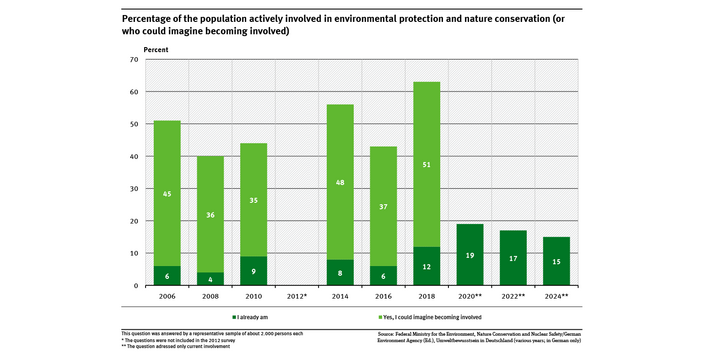The indicator shows that the positive trend of previous years has not continued: In 2024, 15 % of the representative sample said they were actively involved in environmental protection and nature conservation. In 2022 and 2020, the figures were 19 % and 17 %.
Prior to 2018, the trend was mixed. Between 2006 and 2016, the share of people reporting active engagement in environmental protection and conservation varied between 6 % and 9 %. The share of people who reported being involved ranged from 35 % to 48 %. This figure rose to 51 % in 2018; this fraction was not recorded in 2020. Alternatively, the willingness to get involved in environmental protection and climate action in the future was surveyed in 2024 and 2022. With 29 % in 2024, this was roughly the same as in 2022 (28 %).
A high level of environmental awareness is not only essential for a sustainable way of living. It is also an important driver for robust environmental policy which can adequately protect natural resources. Thus, voluntary involvement and participation should be further supported by environmental policy.
